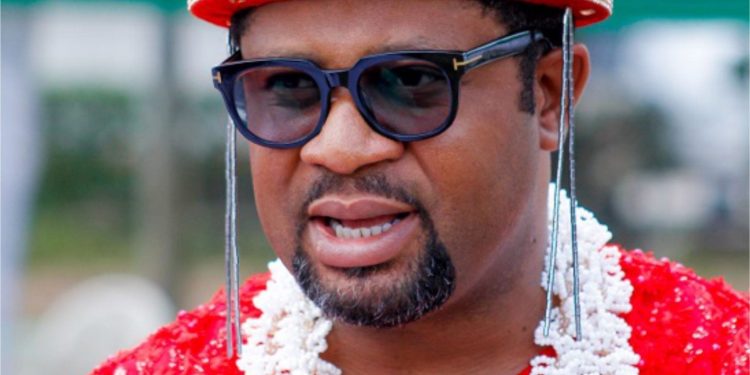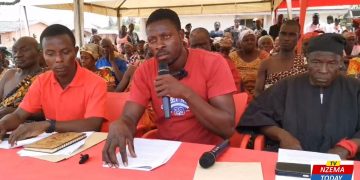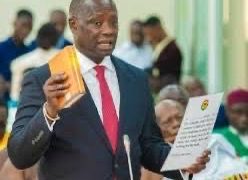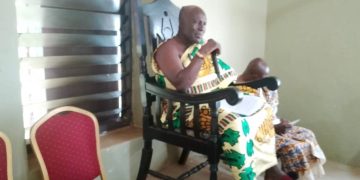July 7, 2025 – A wave of controversy has emerged in Ghana following reports that a Nigerian national, self-proclaimed as an “Igbo King,” has acquired 50 acres of land in the Ningo-Prampram area of the Greater Accra Region. The move has sparked widespread public concern, official denials, and calls for government action.
The individual at the centre of the dispute, Dr. Chukwudi Jude Ihenetu, refers to himself as the “Eze” (King) of the Igbo community in Ghana. According to public statements and online content, he intends to construct an “Igbo Village” on the acquired land. The proposed site is said to include a palace, cultural center, town hall, and guest house, with infrastructure modeled after Igbo customs and landmarks.
But this initiative has raised serious red flags among Ghanaians. The Member of Parliament for Ningo-Prampram, Hon. Samuel Nartey George, has strongly refuted any suggestion that a foreign king holds land or traditional authority within his constituency.
“There is no such kingdom in Ningo-Prampram. Ghanaians should disregard such claims,” the MP declared in a public address.

Concerned citizens and groups, including APEX Citizens of Ghana, have issued a formal petition to the National House of Chiefs and other government institutions. The group describes the situation as a “dangerous precedent” that could threaten Ghana’s territorial integrity and cultural framework.
The controversy has also gone viral on social media, with many questioning how a non-Ghanaian could claim traditional authority in a country that already has its own structured chieftaincy system.
While some view the project as a cultural initiative aimed at preserving Igbo heritage abroad, others see it as a direct challenge to Ghanaian sovereignty and law. Critics argue that Ghana’s commitment to pan-African solidarity should not be mistaken for permission to establish foreign kingdoms on Ghanaian soil.
“Ghana’s openness should not be misinterpreted. We cannot allow any form of parallel authority to develop outside of our laws and customs,” said a local legal expert who spoke with Nzematoday TV.
As of today, there has been no official statement from the Ministry of Chieftaincy and Religious Affairs. However, calls are growing louder for authorities to take immediate action and investigate the legitimacy of the land acquisition and any claims of sovereignty associated with it.
This incident highlights a deeper conversation about cultural autonomy, legal authority, and national identity. While Ghana continues to welcome people from across Africa and the diaspora, the country remains firm on its constitutional and traditional values.
Nzematoday TV will continue to monitor this developing story and provide verified updates as more information becomes available.
By Nzematoday TV











